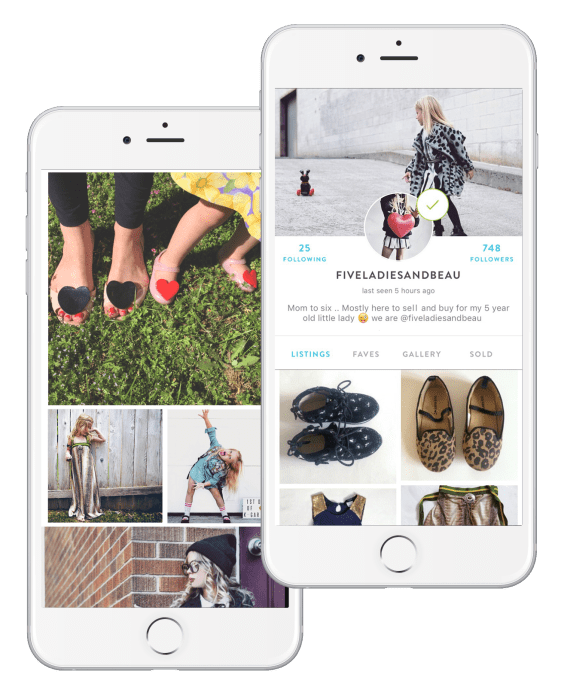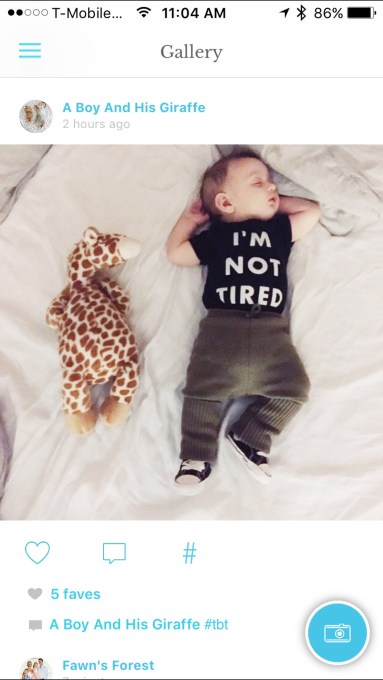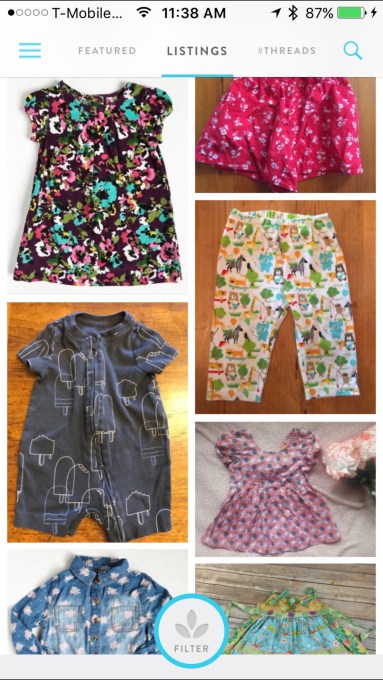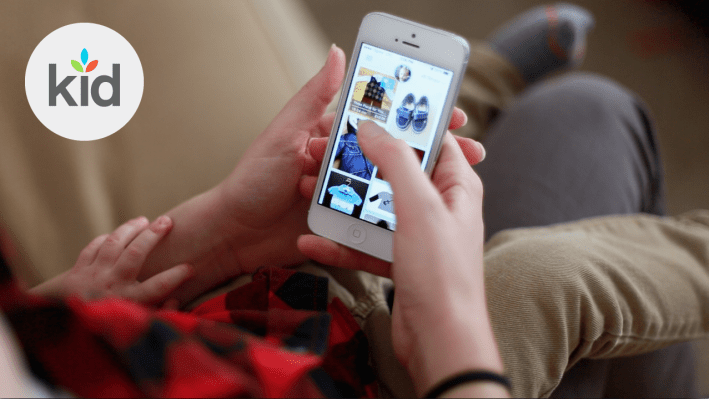Kidizen, a marketplace for secondhand children’s apparel, has raised $3.2 million in Series A funding, the company announced today. The funding was led by Chicago-based Origin Ventures, which backed the startup following its more than 100 percent year-over-year growth in 2016 — which has allowed the business to reach more than a quarter million registered users across the U.S.
Also participating in the round were Royal Street Ventures, Corigin Ventures and MergeLane. Prior investors Sofia Fund and Gopher Angels joined, too. Brent Hill, a partner at Origin Ventures, and Laura Brady, partner at Royal Street Ventures, will join the company’s board of directors as a result of the funding.

The mobile-first store was founded in February 2014, and is run by three parents: Mary Fallon, Dori Graff and CEO and co-founder Dug Nichols.
The idea emerged from Fallon’s and Graff’s earlier platform, Itizen, launched in 2010, which tracked the stories attached to collectible items as they changed hands. But they realized their users were interested more in a marketplace for buying and selling items, not tracking them.
The Kidizen mobile app was soon born, allowing parents to snap photos of their kid’s clothes and other items, like accessories and shoes, or even baby gear and toys, in order to resell them to other parents in need.
However, unlike secondhand marketplaces such as ThredUp, sales are not limited to high-end apparel. Parents can list lesser-quality clothing, post lots or post pieces individually. However, the majority of the listings tend to be mid- to high-end apparel, or boutique clothing, given the better potential for sales. Sellers get to keep 82 percent of their profits.

What makes Kidizen unique, compared with other secondhand marketplaces, is that it has developed an online community and social network of sorts alongside its storefront. In its app, there’s a “Gallery” feature that lets moms post photos of their kid’s style. (To clarify, while open to anyone, almost all users are moms.)
“Our users are using Kidizen to express themselves,” explains Nichols. “Users have pride in how they express their sense of style,” he says.
The gallery feature was added around two years ago, and has become a core part of the app. Filled with lifestyle photography, Nichols says it’s similar to an in-app Instagram feed of sorts. Plus, the photos shared in Kidizen can be pushed out to other social networks, like Instagram and Facebook, and other users can comment on the photos, giving it a social feel.

Hashtagging is also a popular activity, and moms tend to add tags to both their own photos and listings as well as those belonging to other users.
“Basically, they’re creating what are like these curated collections through the hashtag…It’s in its infancy, but what we’re seeing that this is really a self-expression platform that’s both about the stuff and the style and inspiration,” says Nichols.
Because of this community element, the app is seeing high repeat usage. Indeed, 88 percent of all sessions are daily repeat users, and 55 percent are hourly repeats. In addition, 80 percent of purchases are coming from repeat customers, the company says.
Kidizen has also been regularly featured in the App Store since its debut, but it attracts many customers through word-of-mouth, Nichols claims. “We see 70 percent organic user acquisition monthly. Most come with a need: buy or sell, and they stay because of the community engagement.”
The peer-to-peer marketplace is growing to include more than just individual moms and power sellers these days, and now has a small portion of customers who run boutique clothing shops (like those found on Etsy) or are brick-and-mortar consignment stores looking to resell their items.
The funding will be used to add more features to the service, including those that allow for more curation, sharing and self-expression, but the particulars are being kept under wraps. A future version of the app will take on Facebook Groups — a massive rival for online resale marketplaces like this — by introducing a local selling component.
The funding will also allow the Minneapolis-based company to grow its team of five to 15, refresh its apps and eventually expand the service to the web.
